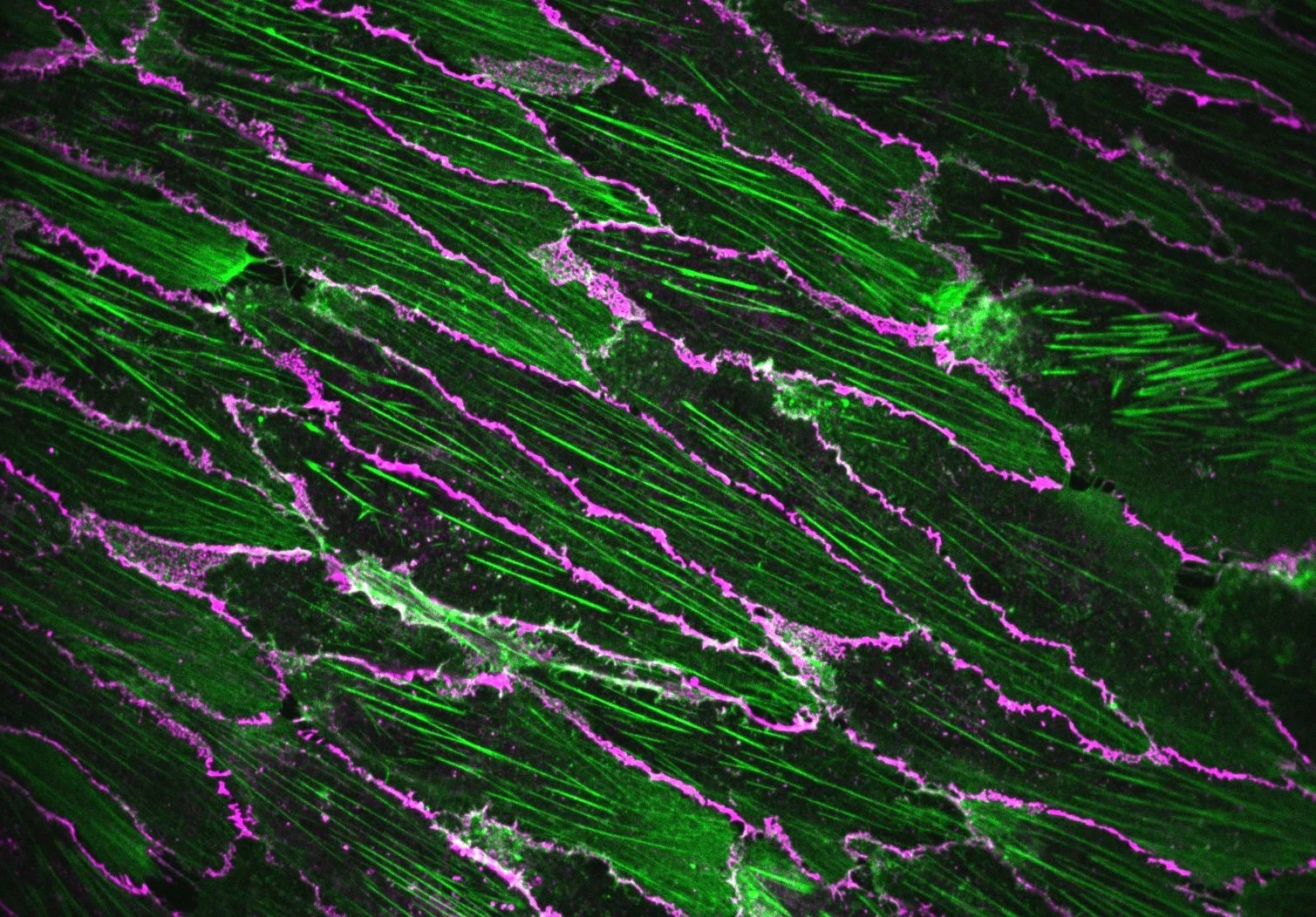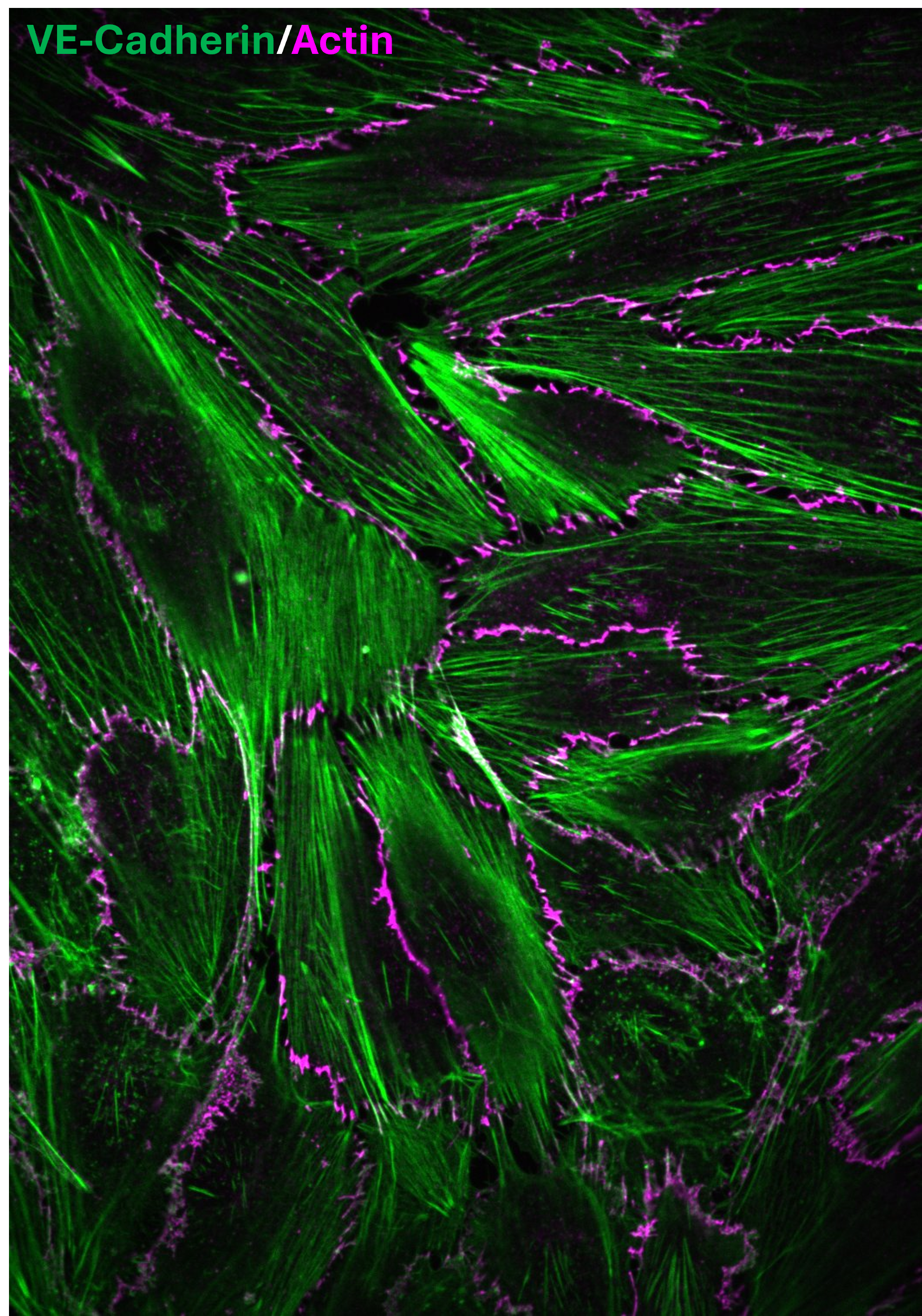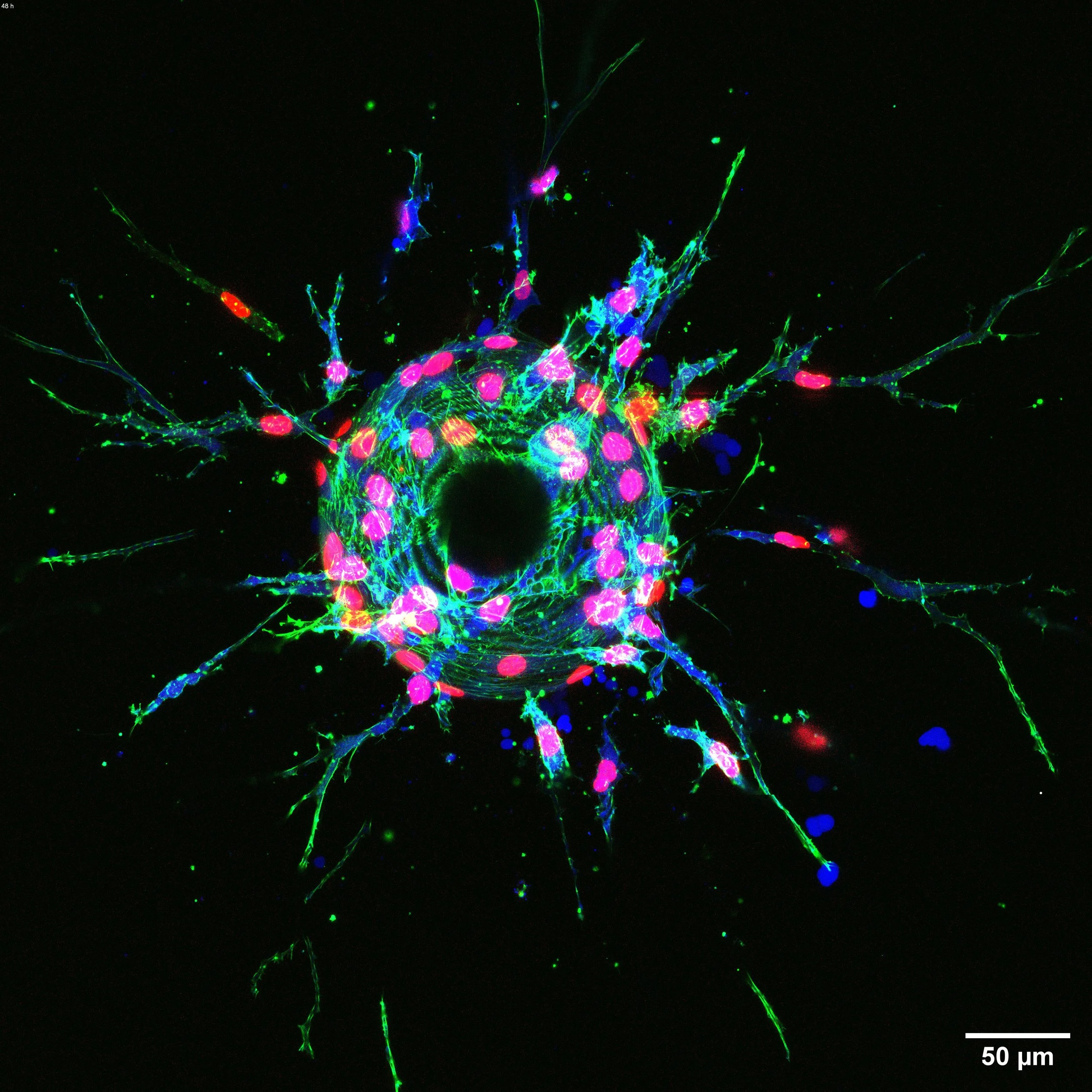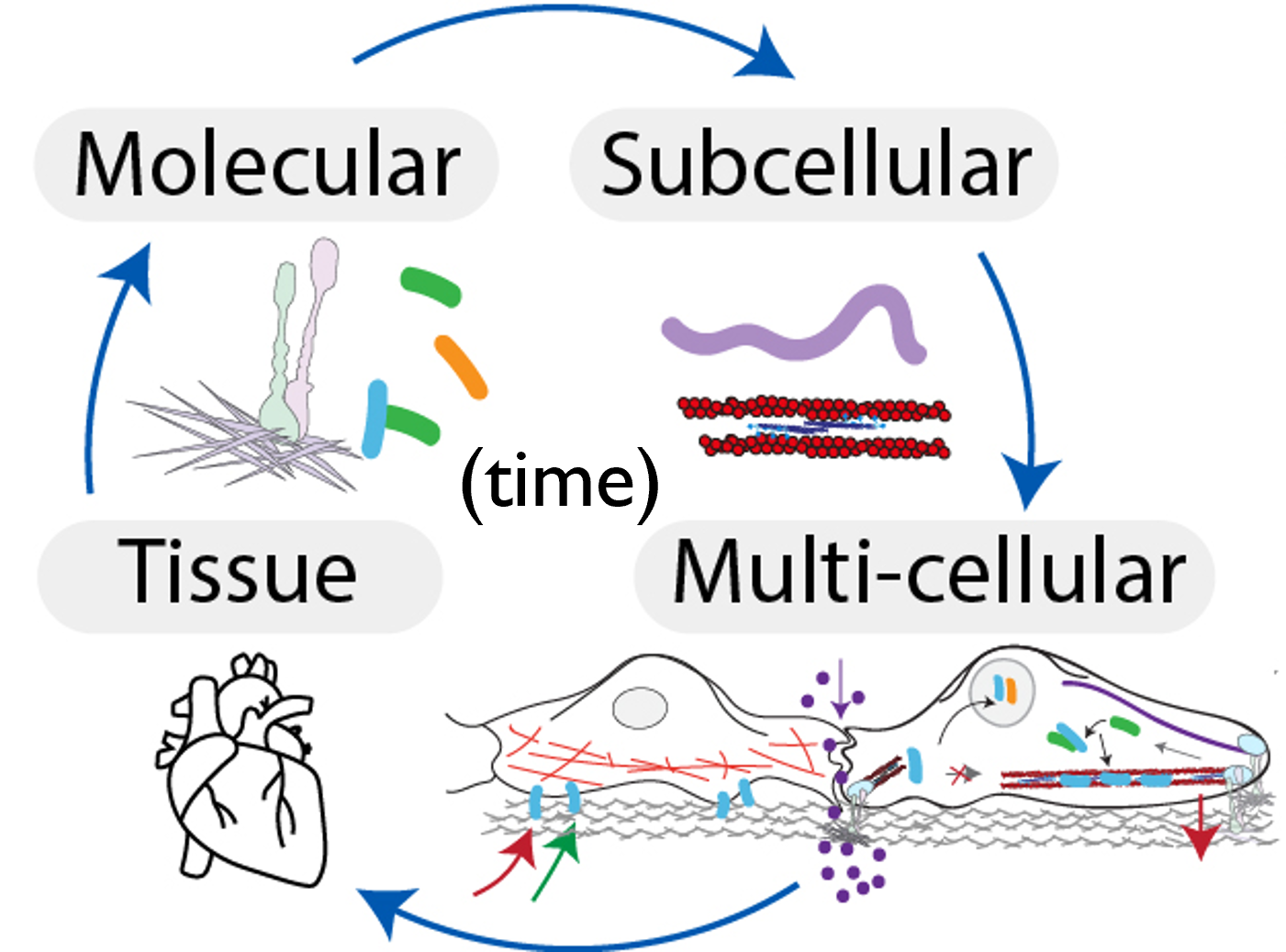
Vascular Mechano-Medicine Laboratory
PI: Shailaja Seetharaman
Our lab decodes and engineers the fundamental feedback mechanisms driving vascular tissue function in health and disease, with the goal of translating these discoveries into disease prediction and novel therapeutic strategies.
Research Areas
How do endothelial cells respond to flow or shear stress, stretch, and curvature? Identify and tune the mechano-chemical feedback loops that go awry in atherosclerosis.
Angiogenesis is a common feature across several cancer tissues. Decode how endothelial barrier function and angiogenesis are disrupted to drive tumor invasion.
We gather rich biological information through microscopy, sequencing, and high-throughput functional assays. Can we interpret and leverage these fundamental mechanobiology insights to build predictive models of tissue function in health and disease?
Interdisciplinary Research
-
We use classical and cutting-edge approaches including high-resolution live- and fixed-cell microscopy, biochemical assays, and measurement of forces, in 2D and 3D endothelial models to uncover mechanisms of cell and tissue mechanobiology.
-
We employ microfluidics, microfabrication, and optogenetics to precisely tune mechanical forces and signaling in endothelial tissues of the vasculature to decode mechanoresponses across scales.
-
We integrate quantitative systems biology, mechanobiology, and machine learning to map how signaling feedbacks drive endothelial function in health and disease.




